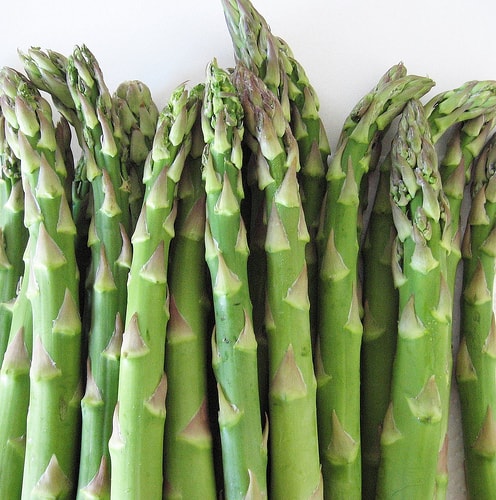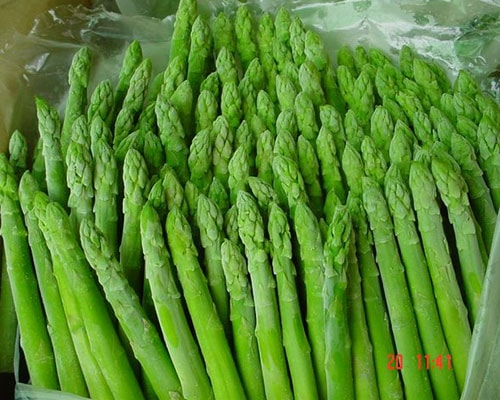Health Benefits of Asparagus
In many European countries, asparagus is considered a "king of vegetables" because it contains many nutrients and is very beneficial for health.
Asparagus, scientific name is Asparagus officinalis. The sprouts in the soil (young bamboo shoots) have high nutritional content (2.2% protein, 1.2% glucid, 2.3% cellulose, 0.6% ash, 21mg% calcium).
Flowers are yellow or pale green. About half of the plants bear male flowers, half bear female flowers. Berries, three compartments, red when ripe. Each compartment has 1-2 black seeds, the seed coat is very hard. F Mary Washington is a white asparagus variety that is commonly grown in Vietnam. Green asparagus has high yield, is less picky about soil, but its commercial value is not high so it is rarely grown.
The quality of asparagus depends on the diameter of the shoot root. With the same length of 15 - 20 cm, the diameter of the shoot root about 2 cm is best.
Control diabetes.A study published in the British Journal of Nutrition has shown that asparagus extract can improve insulin secretion, thereby reducing the risk of type 2 diabetes.
 |
Prevent cancer.Because it is rich in flavonoids - an antioxidant and also has anti-inflammatory properties, asparagus helps prevent colon cancer. Furthermore, a study by the US National Cancer Institute also showed that in addition to flavonoids, asparagus also contains a lot of glutathione - an antioxidant that can prevent and treat many types of cancer very effectively.
Good for the heart.After analyzing the nutritional components of asparagus, scientists said that eating asparagus is very good for the cardiovascular system, because it is rich in potassium which helps regulate blood pressure; rich in folate which helps keep the heart healthy; and rich in fiber which can dissolve annoying cholesterol in the blood.
 |
Furthermore, asparagus contains a lot of saponins, which have the ability to bind to cholesterol in the digestive tract. Docholesterol is “held” here, so it no longer has the opportunity to “travel” in the blood.
Liver cleansing:Asparagus is considered a natural diuretic, so it is very effective in cleansing the liver.
Antidepressant:Asparagus is rich in folate, a B vitamin that can boost mood and ward off depression. Researchers have found a link between low levels of folate and vitamin B12 in people with depression. Daily supplementation of these two vitamins in depressed patients may help reduce symptoms, the researchers said. Asparagus is also high in tryptophan, an amino acid that improves mood.
 |
Good for the intestines:Asparagus contains a carbohydrate called inulin, which helps the intestinal system function properly. Inulin also helps the growth of beneficial intestinal bacteria, such as lactobacilli and bifidobacteria. In addition, because of its high fiber content, asparagus also has a laxative effect.
Boost immune system:Asparagus is a rich source of fiber and protein – two nutrients that help boost the immune system.
 |
Prevent osteoporosis:Asparagus is a rich source of vitamin K, which helps blood clot faster and also helps strengthen bones.
 |
Beautiful skin:Asparagus contains a lot of vitamin C and vitamin A. These are two leading antioxidants that protect the skin from the invasion of free radicals. Vitamin C also helps in the synthesis of collagen. Collagen is a protein that supports the skin and prevents skin aging.
 |
Good for the fetus:Because it contains a lot of folate, asparagus is very beneficial for pregnant women, because folate is an essential vitamin needed for the formation of the fetal neural tube, preventing birth defects.
According to Thanh Nien
| RELATED NEWS |
|---|

